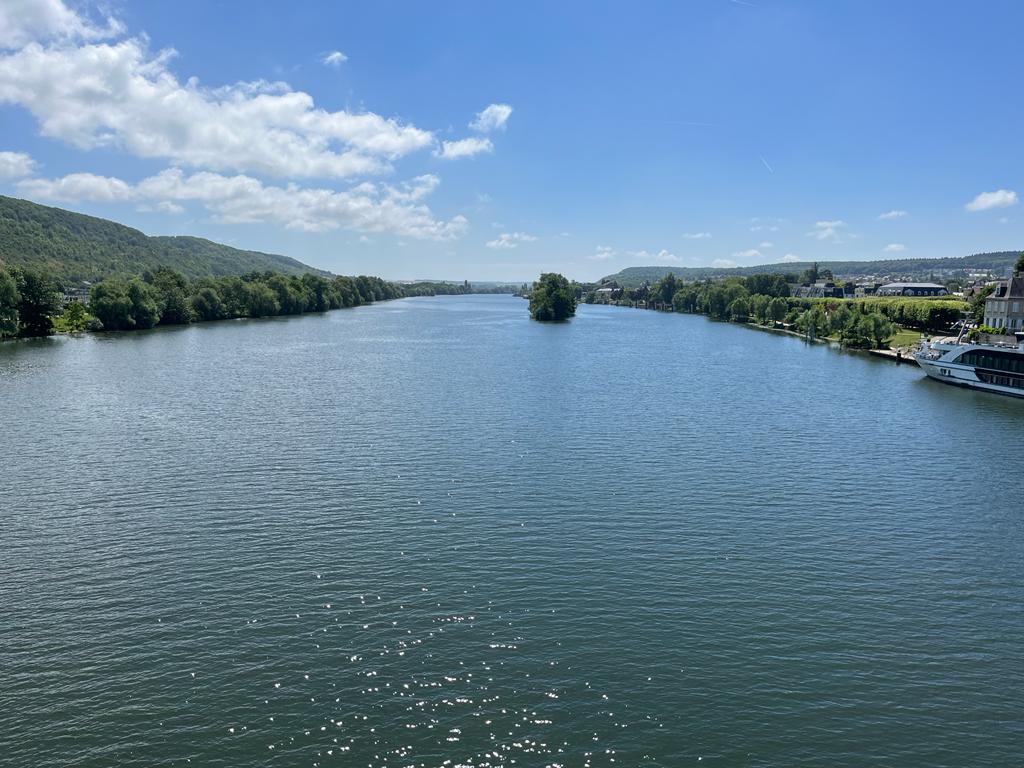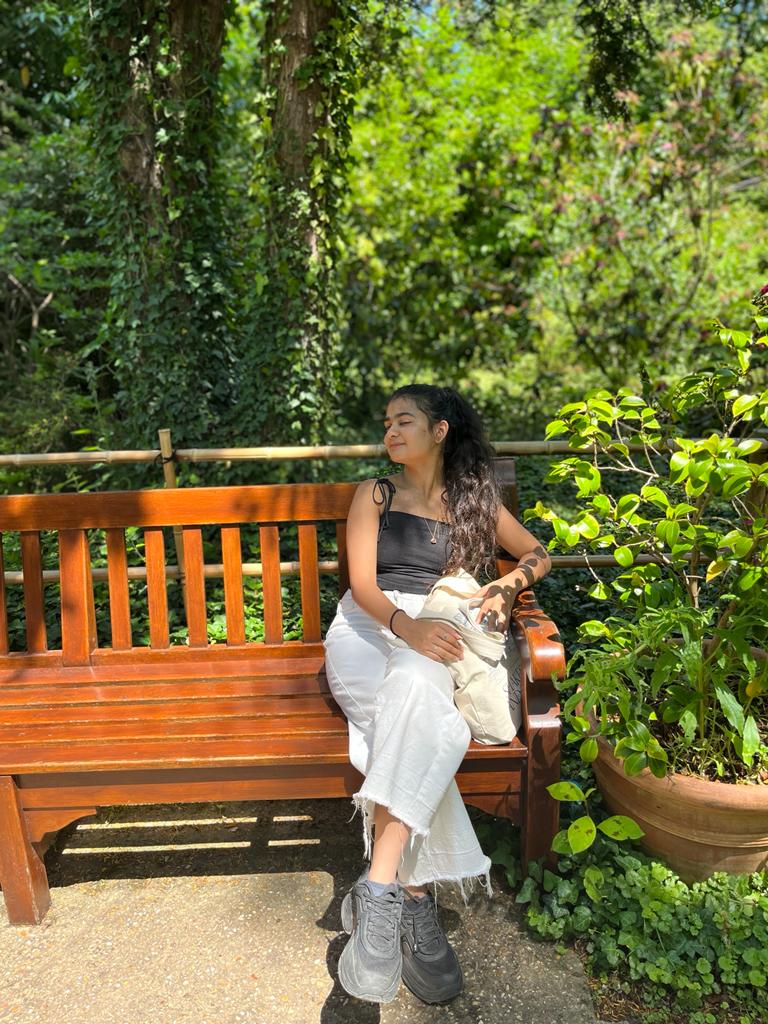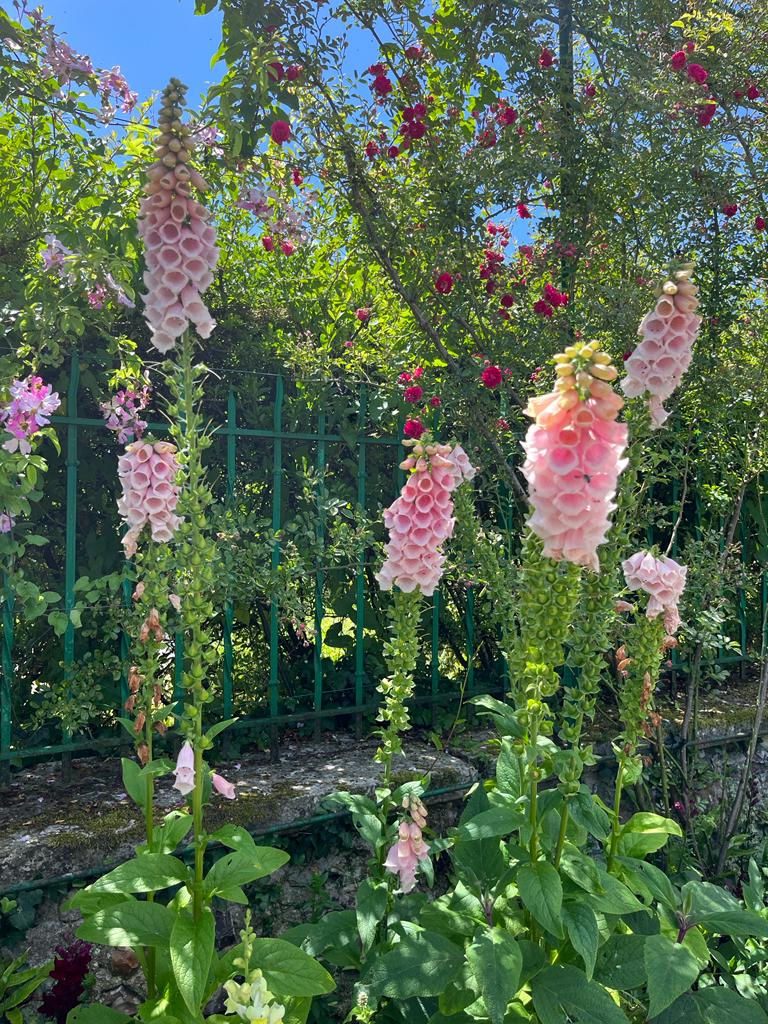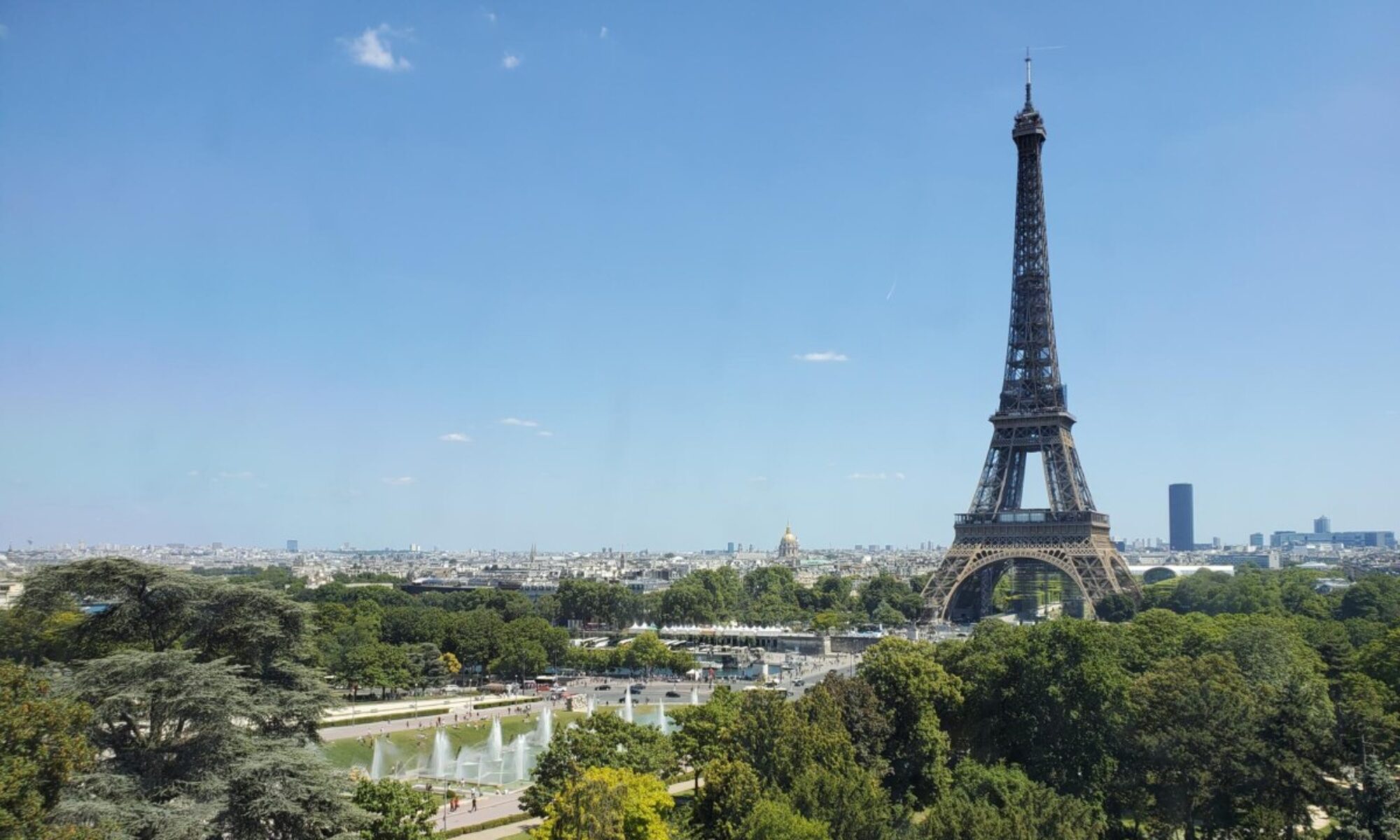Last Sunday on June 12th I went to Giverny, Paris to visit the gardens and house of Claude Monet. My friend, Jewel and I took the SNCF train from Saint Lazare to Vernon-Giverny station from which we rented a bicycle from a nearby shop to go to Giverny. We set sail on our bikes along the French countryside and rode our way to Monet’s house.
We reached the most beautiful little town I have ever seen! The whole town was filled with colorful flowers ranging from Lillies to peonies to even white roses. We got our tickets and went straight to Monet’s gardens. The garden’s entrance felt like being in an enchanted maze, filled with the sound of birds and a feel of fresh air. I felt rejuvenated walking through Monet’s gardens and the town of Giverny itself, and I wondered why I felt so calm and energized simultaneously. We talked about neurotechnology in class- feelzing- a company manufacturing a device that stimulates the brain to feel calm and energized at the same time, and I wondered how I felt this way without a device. The only possible reason I could think of was Nature and its effects on the mind.

It is common knowledge that being in nature helps reduce anxiety and stay calm- a sort of very natural meditation many of us experience. It is also commonly perceived that people who tend to live near a lot of nature including trees, forests, lakes, sea, mountains, etc., or interact with nature daily are happier than those who do not interact with or in nature. According to White et al. (2013), increasing green space in urban areas promotes reduced mental distress and higher well-being on an individual level. There exists an interesting theory known as the Biophilia hypothesis, proposed by Harvard biologist Edward O Wilson, that suggests that humans have an innate affiliation to other living organisms, and this spans across all cultures and countries (Selhub, Logan 2012). Biophilia is a hypothesis that may be able to explain the connection many of us feel when we are amidst nature.
According to Cox et al. (2017), increased vegetation cover and bird sound abundance were positively associated with a lower prevalence of depression, anxiety, and stress. Biologically, this increase in mental health is due to the various smells that we experience in nature including flowers, nectar, water, and also the sounds we experience from various birds, insects, animals, and moving water which helps us recover from stress than sounds of urban life, (Alvarsson et al., 2010).

Overall, this was one of the best trips I have experienced until now and I would recommend going to Giverny to anyone looking for a “secret garden” escape from their busy life. Cycling along the Seine across the country hillside was a great therapeutic choice after a hectic week of work and papers.

References:
https://www.ncbi.nlm.nih.gov/pmc/articles/PMC2872309/
https://books.google.fr/books?hl=en&lr=&id=CFd_7ujLlwgC&oi=fnd&pg=PA1&dq=being+in+nature+and+the+brain&ots=I848kBeiEQ&sig=EY9pICdBZlVPamw6uE0Gp7erWu0&redir_esc=y#v=onepage&q=being%20in%20nature%20and%20the%20brain&f=false
https://journals.sagepub.com/doi/abs/10.1177/0956797612464659
https://academic.oup.com/bioscience/article/67/2/147/2900179?login=true
https://jech.bmj.com/content/72/10/958.abstract
